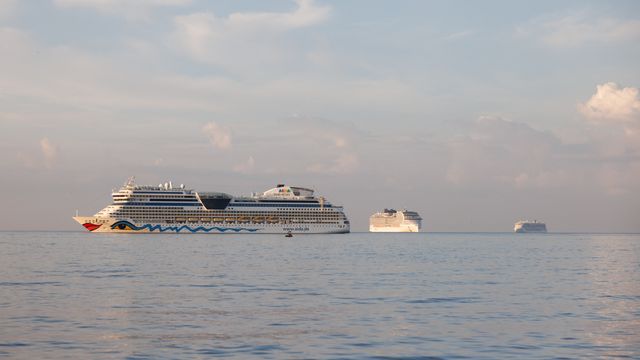For Several Days, Mediterranean Temperatures Have Reached Exceptionally High Levels, Approaching 30°C. This Situation Raises Questions About the Reasons for This Increase and Its Impacts on the Marine Environment and Climate. Explanations from Cyril Wuest, Meteorologist at La Chaîne Météo – METEO CONSULT, on This Phenomenon.
Figaro Nautisme: For several days, Mediterranean temperatures have been abnormally high. What explains this?
Cyril Wuest: Since early June, intense heat has affected the entire Mediterranean basin, with particularly strong heatwaves in Greece and southern Italy. These high and persistent temperatures have led to significant warming of the sea, which has begun to accumulate heat. The continued heat has caused a thermal anomaly of 3 to 5 degrees above seasonal norms.
F.N.: Is this the first time we’ve seen such temperature anomalies?
C.W.: Last year, we recorded water temperatures close to 29°C in the Gulf of Genoa. Today, we are reaching record highs of 30°C near Nice and Monaco, with an anomaly of 4 to 5°C above normal. The Gulf of Lion is less affected due to the mistral wind, which cools the water surface by pushing warm waters offshore.
F.N.: Is the entire Mediterranean affected, or are there specific areas?
C.W.: Yes, there are specific areas with variations. For example, the Adriatic Sea currently shows an anomaly of 2 to 3°C. Overall, the entire Mediterranean basin is warmer than usual.
F.N.: Is there a link between extreme land heat and water temperature?
C.W.: Absolutely. Air heat gradually warms the water. If air temperatures reach 35°C or more for several days without wind, the water warms even more. In the absence of water movement, this warming is even more pronounced, leading to the record temperature anomalies we see today.
F.N.: What are the consequences for marine life and the climate?
C.W.: The impacts are numerous. Corals, though not abundant in the Mediterranean, suffer from bleaching due to rising temperatures, affecting marine biodiversity. Fish that prefer colder waters move to deeper areas, making fishing more challenging. Regarding the climate, oceans, which absorb 20 to 30% of CO2 produced by human activities, may no longer be able to capture this gas effectively, leading to ocean acidification. This could create a vicious cycle of climate warming and extreme weather events, like more intense storms and flooding.
F.N.: Is the Mediterranean the only sea affected by this phenomenon?
C.W.: No, the Baltic Sea is also experiencing temperature anomalies, though less pronounced than those in the Mediterranean. In contrast, the Atlantic and the English Channel are recording normal temperatures.
F.N.: Will this last until the end of summer? Beyond that?
C.W.: Even if air temperatures begin to drop after August 15th, the sea will take longer to cool due to its inertia. This phenomenon could therefore persist for several weeks.
F.N.: What could help reduce the sea’s temperature?
C.W.: Increased water mixing, more wind, and rainy depressions could help cool the sea. Cévenol storms, for instance, could bring torrential rains and thus reduce water temperature.
Source : Figaro Nautisme



